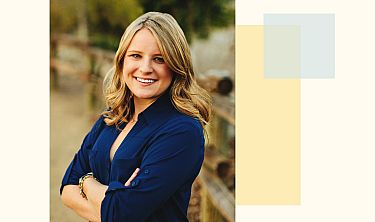If you’re new to freelancing or you’ve been doing it for a while, tax season is the time when reality starts to sink in. Maybe you weren’t making as much as you thought. Perhaps you didn’t keep detailed records of all your client lunches. Also, what really is a home office?
These kinds of areas can make tax season excruciating for independents. But, the good news is: it doesn’t have to be. Your taxes may have been a pain this year, but they don’t have to be next year. The easiest way to make your life easier during tax season is to — wait for it — plan ahead.
There are simple things you can do throughout the year to make sure you don’t end up with a giant, daunting tax bill and a hundred missed deductions. To help make next year’s tax season — and all the tax seasons yet to come — not so miserable, we caught up with Paul Strot, CPA, a Minnesota-based accountant and IRS-registered tax preparer, and Anthony Badillo, a Certified Financial Planner based in South Carolina.
Pay Estimated Quarterly Taxes
Come December, you may think you’re rolling in freelance cash, but if you haven’t been paying estimated quarterly taxes, you’re in for a potentially hefty tax bill in April on top of a penalty from the IRS for not paying.
To avoid this, Badillo recommends setting up a separate bank account just for taxes and putting at least 20 percent of each check in there. “As soon you get the check from the client, put no less than 20 percent of it right into that account you’ve got earmarked for taxes,” he said. “That relieves so much stress and headache at the end of the year when doing your taxes.”
To get a more exact estimate, Badillo recommended working directly with a CPA or enrolled agent or using a software program like QuickBooks Self-Employed.
Form an Entity, Elect S Corp Status
If freelancing has become your primary source of income, you could be leaving some serious money on the table if you haven’t incorporated, Strot said.
“If it’s going to be your permanent job and you make at least $30,000 a year, at that point, that’s where I tell people it makes sense to think about forming an entity and electing S Corp. status,” he said.
If you decide to incorporate as either an LLC or an Inc. and elect S Corp. status, you’ll pay yourself a salary and you’ll also pay yourself any dividends from your business — which you don’t have to pay any self-employment tax on.
“If you’re making $100,000 and you’re a sole proprietor, you’re going to be paying $15,000 in self-employment tax,” he said. “If you elect S Corp. status, you’re automatically cutting that $15,000 in half. That’s a lot of money.”
To elect S Corp. status, you’ll have to first incorporate with your Secretary of State’s office and pay an annual fee to become an LLC or Inc.
Know What You Can Deduct
As an independent and, technically, business owner, you have a lot of deductions available to you. The trick is keeping track of those throughout the year so you can safely deduct those expenses while doing your taxes. In addition to keeping good records, it’s important to consider whether you’ll be able to deduct the things you’re buying for your business.
“For example, if you have to go to a conference, make sure that it’s something that’s within your line of business,” Badillo said. “Make sure there’s a pertinent reason for it because then you can later include and deduct things like the cost of parking, tolls, hotels, lodging, baggage charges, laundry and airline tickets. All of those can be deducted at the end of the year.”
Badillo said a CPA or enrolled agent is your best bet to help you figure out what you can and cannot deduct and helping you learn the special rules. “If you’re on a business trip and eating by yourself, that’s not technically a business expense anymore,” he said. “You’ve got to be eating with a client and doing business or forging a business relationship.”
Automate Your Back Office
Savvy independents should be spending more of their time honing their craft and working billable hours for clients — not moonlighting as amateur accountants.
“I try to get everything automated as much as possible for clients,” Badillo said. “I just think it’s easier that way.”
Badillo strongly recommend working with a CPA or an enrolled agent to make sure you’re not only doing everything correctly but you’re also not leaving money on the table.
“I’m a financial planner, I have my own financial planner and my own tax professional as well. That’s how much I value it,” he said. “You have to ask yourself: how much are your time and peace of mind worth? I don’t have the time, knowledge or desire to be involved in every aspect of my own taxes.”
Don’t be afraid to invest in the resources that you need to keep your business going. Sure you could do it all yourself, but is that the best use of your time? By making the operations easier, you have more time and energy to focus on your work.
Keep Good Records
When tax season rolls around, the last thing you want to be is disorganized. Keeping good records of all your expenses throughout the year will help you cleanly and easily figure out how much you spent on your business and where you spent it.
The best-case scenario is to hire an accountant or bookkeeper, but if you can’t afford that, a simple software program is far better than a few crumpled napkins in your glovebox.
“The answer there is QuickBooks — either QuickBooks online or QuickBooks for your PC,” Strot said. “It’s all about good record-keeping on the computer. And the only real program that I’m comfortable with, that has 85 percent of the market out there, is QuickBooks.”
Set Up Separate Accounts
A cheap, easy step that freelancers can take to ease the burden of tax season is to set up separate accounts for their business. As mentioned above, independents should have at least one account for taxes, but Badillo actually recommends setting up four accounts. That may seem like overkill, but it’ll save you time, money, and stress in the end.
1. Operating Expenses
“This account is for bills. It’s for payroll (if you have employees), it’s for utilities, marketing expenses,” he said. “The operating account is really the account that the expenses are paid out of.”
2. Owner Pay
“This is what freelancers use to pay themselves as a salary, not to be reinvested in the business,” he said.
3. Profit
“On top of what you pay yourself, this is the profit,” he said. “That could be reinvested back into the business, it could be distributed quarterly to help offset any taxes or even used as a reward for your hard work. You could pay yourself out a bonus.”
4. Taxes
“This is the one where you’re actually saving 20 percent of every dollar earned to pay your taxes,” advised Strot.
These tips will help your business to run smoother and more efficiently, ultimately saving you time, money, and stress. Getting slammed with an unexpected tax bill is practically a rite of passage for new independents, but it doesn’t have to be. If you get the right partners and plan ahead, you can stay on top of your game and be successful in your solo work.
We’re here to support you and your independent career with the best advice from thoughtful experts. It’s important, though, that you always check with your own financial or tax professional before deciding the best approach for your business.





